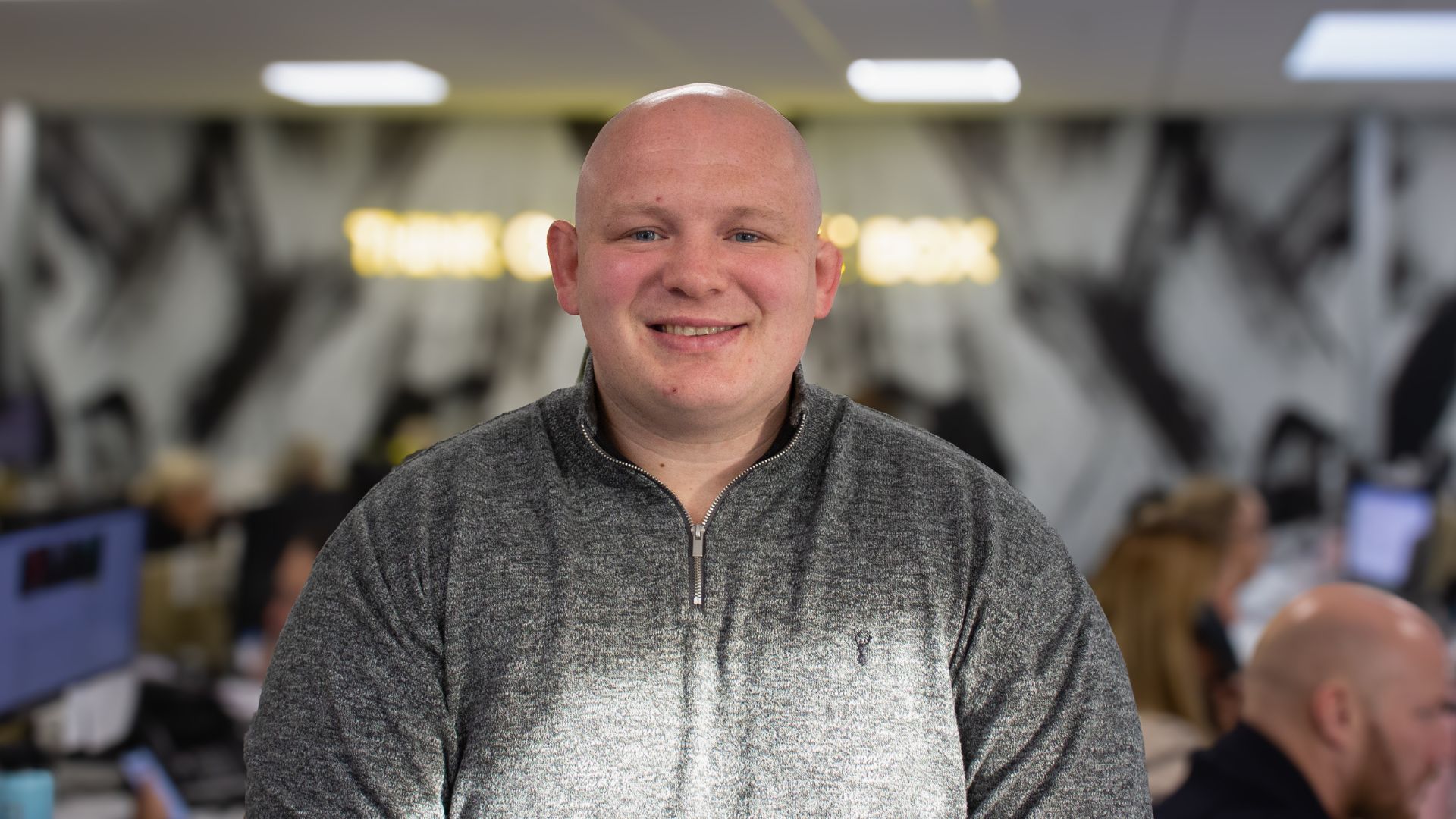Insights From a SEND Teaching Assistant
12 Feb, 20241-2 minutes
In this blog, you will learn:
- About the experience of a SEND Teaching Assistant.
- Gain insight into how the education and SEND sector works and the current challenges in the industry.
- How to find and apply for the best SEND Teaching Assistant jobs.
In our latest interview, a SEND (Special Education Needs and Disability) Teaching Assistant provides valuable industry insights, shares challenges, and discusses responsibilities in supporting students with special needs in mainstream education.
With over 18 years experience, this SEND Teaching Assistant has their fair share of knowledge of the education and SEND sector. Working in the same primary school in the North West for nearly 2 decades, she has found many benefits to working with children with SEND and has noticed many changes in the industry throughout her career.
From changing career paths early on, to creating meaningful relationships with pupils with SEND, we delve into her knowledge of the industry and a passion for seeing students thrive.
Tell me about your career journey so far
As a young girl, I always wanted to be a Teacher and started to work towards a Teaching degree. After studying English Language and Literature, Sociology and Christian Theology/RE at A Level, I had three children in quick succession and didn’t have the time to commit myself to being a Teacher.
I changed my plans and decided to become a Teaching Assistant and when my youngest was 5, I began volunteering at a local primary school to gain experience and get my foot in the door. I completed my Level 1 and Level 2 Teaching Assistant qualifications and found that I was working with more and more pupils with SEND.
I realised my true passion and progressed to become a SEND Teaching Assistant in 2006. I underwent special training for epilepsy, asthma and diabetes, learning to tube feed and epipen training.
What does your job require?
I work with the Teacher in the classroom to support and enable the right learning environment and needs for students with physical, social and mental needs. I currently support a child with a chromosome abnormality who has sensory issues and also a child with global development delay. The symptoms of this include struggling with walking and learning new things, movement skills, and interacting with others socially and emotionally.
I also support and supervise children with severe autism who are non-verbal, violent, and in 4 cases, incontinent. I’ve also worked with children with speech and language problems delivering a programme several times per week set up by a Speech and Language Therapist.
In the past, I have supported multiple children with a range of conditions both physical and mental including:
- Brittle bones, hydrocephalus.
- Severe loss of eyesight.
- Severely low IQ.
- Neglect and sexual abuse.
- Incontinence.
- Down syndrome.
- Hearing impairment - including changing hearing aids.
My responsibilities also include performing Percutaneous Endoscopic Gastrostomy (PEG), a type of tube feeding through a stoma, and tracheostomy changing and daily suctioning. As well as supporting the Teacher in the classroom and assisting all pupils, I also complete reading records, work on displays, photocopying and preparing resources.
What would you consider the most important task of the day to be?
My biggest responsibility is to my pupils with SEND and their welfare, which means the most important task is to check that my pupils are in school and that I know how they have been.
As I cover all aspects of the health, wellbeing and education of children I work with, I know how important it is to stay up to date with pupils with SEND and how things might have changed or may affect their learning.
I do this by communicating with parents about how the pupils have been and about changes in their welfare. I also check in with the Special Educational Needs Coordinator (SENCO) to ensure that all children who require one-to-one support are covered.
Another daily task that is so important, is to regularly check any equipment that children with SEND use such as wheelchairs and suctioning machines, to ensure that they are safe to use.
What is the most challenging part of your job?
Working with violent children is difficult and can be really physically and emotionally draining. Knowing what strategies to use in the classroom and getting to know the pupils and understanding their individual needs helps to manage any challenging or violent behaviour in the classroom.
The best strategies to use depends on the individual and their needs and disabilities, however it is crucial to be calm and compassionate. I make sure I get to know the individual who displays the challenging behaviour in order to understand how best to control the situation.
Being in a classroom with a child who is in internal exclusion or for a one-to-one can be challenging, as it is difficult to be able to give the child space and identify the feelings causing aggressive or agitated behaviour. It’s part of the job, and the only way to deal with it is by using my knowledge of the child with SEND and looking for any signs.
What is the best thing about working as a SEND Teaching Assistant and what do you enjoy most about the role?
When the children are happy and achieving, that’s what it’s all about. If they’re doing their best it’s the most rewarding part of the job. I’ve built special relationships with the pupils I have worked with over the years and I love seeing them thrive - even years later!
What have you learned so far in your 19-year career?
I’ve learnt that all children are capable of learning despite their challenges, but they do work at their own pace and that needs to be kept in mind. Every child is different and requires different care and attention, and shouldn’t be grouped or addressed according to their disability or needs.
I also know that every day in the classroom is different and unpredictable, so I’ve learnt to adapt and trust my instincts. I will ask for support and advice if I’m struggling or if another person can be of help, especially when it comes to a child’s wellbeing and education.
What would you say has been your biggest achievement?
Supporting all children is important to me, but there is one child that stands out in particular. When this child started in reception class he was incontinent, PEG tube fed, non-verbal and used a walking frame. He required special support and care and was presented with lots of challenges.
He is now 22 years old, capable of holding conversations, able to eat normally and continent. Knowing how far he has come and that he is attending college and able to walk without his walking frame, I’m so proud that I helped him achieve this and that he is well on his way to reaching his goals.
What obstacles have you faced in your career as a SEND Teaching Assistant?
I’ve experienced poor management in the past which has made it difficult to provide the best care for pupils when you yourself don’t feel supported. If the management team or SENCO isn’t doing their part, this can have a domino effect on pupils with SEND who are not being properly supported or their learning and development prioritised.
I’ve also found that some Teachers don’t seem to be interested in children with special needs, especially those who are below average academically. When this is the case, it can make my job even harder and it is disheartening.
It’s also difficult when parents don’t follow medical advice and put their children at risk, or neglect their children’s basic needs e.g. food, warmth and protection. This is a huge concern and makes my job more difficult as I find that I need to be more aware of children’s health and safety.
How have things changed or progressed in the industry?
More children than ever are being diagnosed with a disability or special needs, and there is a greater need for more support and training.
Medical professionals are busier than ever and I think that the needs of some children have gone under the radar due to high demand. The process for children to see an Educational Psychologist and wait for an assessment for an Education, Health and Care Plan is time consuming and there is a constant wait to be seen and heard.
This means that more children with severe, complex mental and social needs are in mainstream schools than ever before without the right support system in place.
What do you feel can be done to support pupils with SEND in the classroom?
More training is needed for Teachers and Teaching Assistants to be able to support children with SEND and understand their individual needs. As many specialist schools have long waiting lists, more and more pupils with mental and social needs are being taught in mainstream schools than ever before without the right support in place.
Working in a mainstream school, it can be difficult to meet the needs of pupils with complex special needs as they can require one-to-one care which means more staff are needed in the classroom.
How do you deal with stress or the pressures of your job?
It can be easy to bring work home with you and in the past I have struggled to separate and balance my personal life and work life. I try to switch off from work as best as I can. When I’m away from school, I don’t check my emails or allow myself to stop myself from becoming too invested or involved.
At work I talk to my friends and colleagues and just offload! Being able to talk and share things is so important, and makes me feel less stressed.
Do you have any tips or advice for someone new or up and coming in the industry?
Learn on the job, even if you volunteer first! That’s how I did it, and it better prepared me for life in the classroom. Even though things have changed since then, volunteering and getting experience gives you an idea of who is in the classroom and what to do.
It’s also important to know that it isn’t a job just for the school holidays, it is an important part of shaping the lives of children and helping them feel supported.
What are your plans for the future? Where do you hope to progress to?
I am happy with my current role and have no plans to progress further or change my course. As a Level 2 SEND Teaching Assistant, I work with individual children with special needs and disabilities everyday and I am happy with my responsibilities and the bonds I create with my pupils.
I like that I can get to know them better on a one-to-one basis, rather than an entire class, as Level 3 and 4 Teaching Assistants teach whole classes which is something that no longer appeals to me.
SEND Teaching Assistant jobs
Searching for your dream SEND Teaching Assistant job? Look no further! We work with a number of mainstream and SEND schools, predominantly in the North West area, who are seeking exceptional talent to join their schools.
Check out what roles we have available now or upload your CV and one of our education recruitment consultants will be in touch when a relevant opportunity becomes available.
Love this content? You might also like:
- What Makes a Good SEND Teaching Assistant?
- How to Write a Good SEND Teaching Assistant CV.
- How to Ace your SEND Teaching Assistant job interview.
- How to Write the Perfect SEND Teaching Assistant Cover Letter.
Recruiting SEND Teaching Assistants?
As a leading SEND recruitment agency, we support countless mainstream and SEND schools with their recruitment needs. If you’re struggling to fill a vacancy, why not give our Managing Consultant, Jamie Heath, a call on 01772 954200 to discover how we can assist the needs of your school.
Meet Jamie Heath
Share your experience
Every individual brings a unique set of experiences, thoughts, and insights to the table. We believe in giving a voice to a community of professionals to inspire positive change and champion reform in the education sector.
If you work in the education sector and would like to share your own personal and professional experiences, we’d love to hear from you. Perhaps you have a different perspective, could offer a fresh angle, or want to challenge assumptions.
Simply reach out to our Head of Content, Nicole Sherwood, to discuss a collaboration which makes your voice count.
Who is Spencer Clarke Group?
Based in the heart of Lancashire, we’ve been reshaping the recruitment industry with our innovation and passion for evoking positive change. As we continue to grow and develop as an agency, so does our commitment to making a positive difference and shaping a brighter future for all.
Whether it’s teaching professionals or support staff seeking career development, or schools looking to expand and hire temporary, permanent or temp-perm staff for their school, we’re here to help.
We operate in two sectors:
In eleven specialisms:
Healthcare, Social Care & Nursing
Corporate Functions & Business Support




